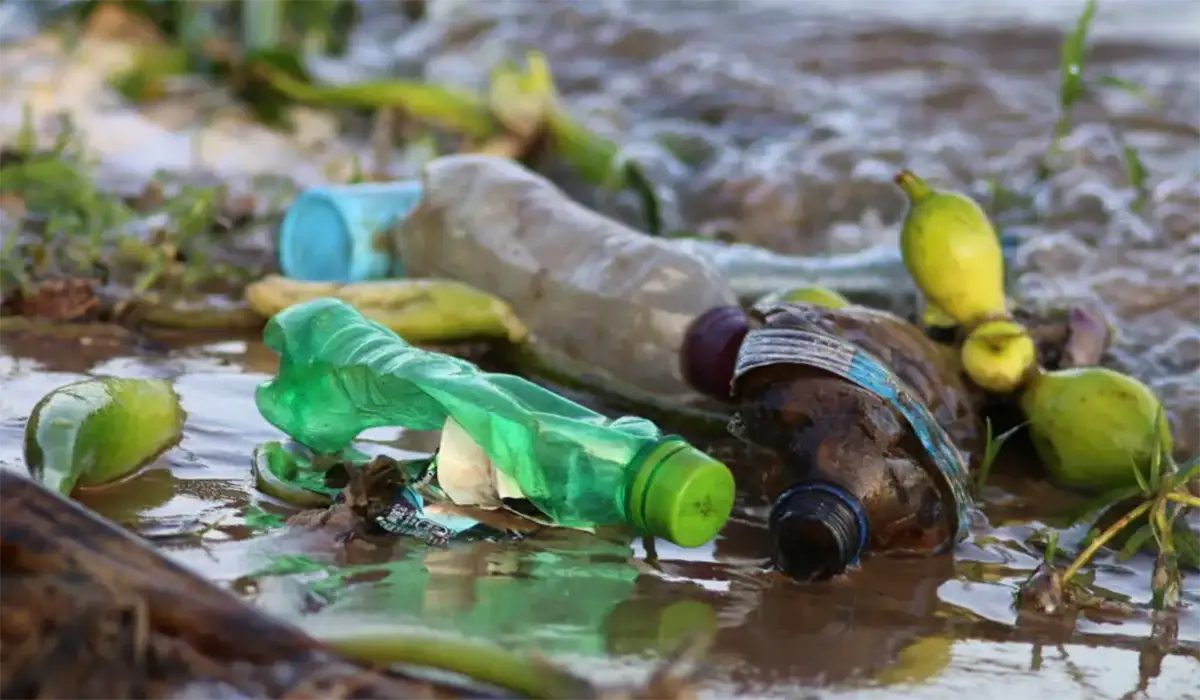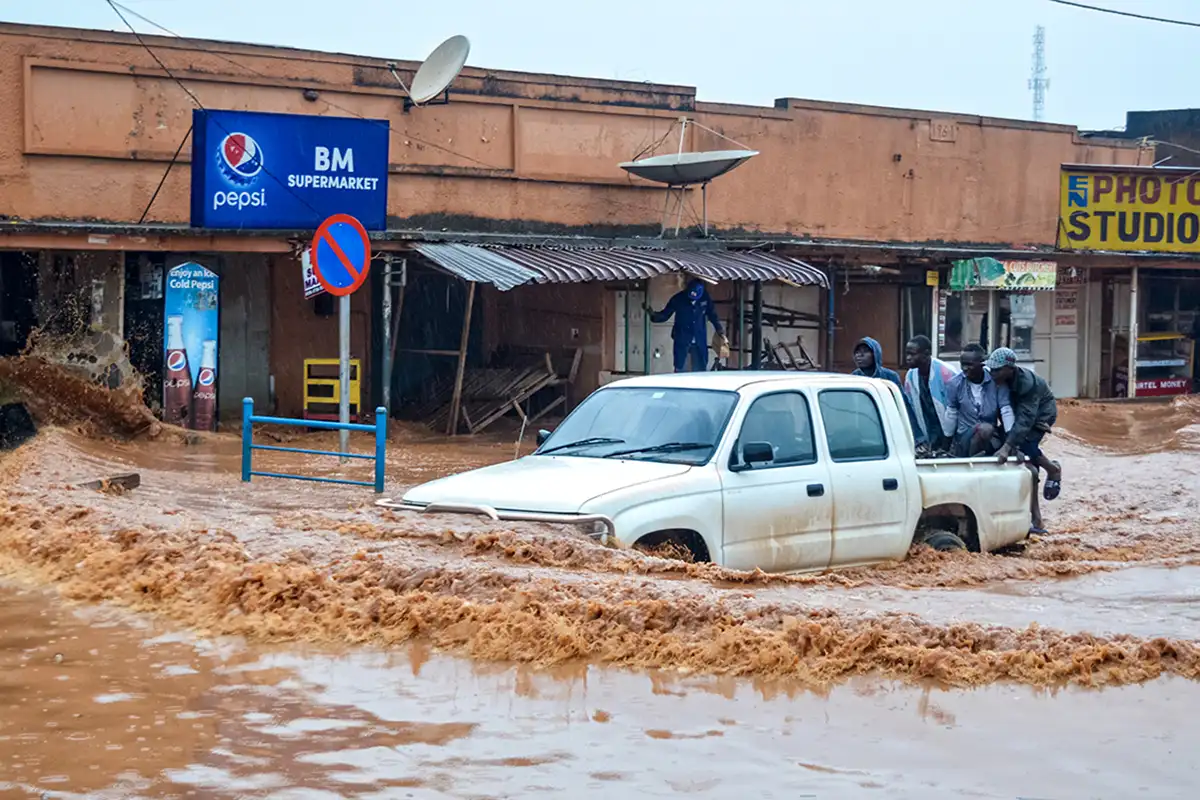
With the rains come floods, with the floods come garbage, and in the garbage, plastic prevails. In our homes, right from the combs we use, the cooking oil bottles, to the laundry baskets. In our schools, in our offices, plastics are everywhere.
Take, for instance, citizens who intentionally throw their rubbish onto the road or into a drainage. Market women often use the heavy rains to their advantage by tossing rubbish into the drains, hoping the water carries it away. But taken to where? Consider how the places with the most rubbish often have a ‘No dumping, fine 100,000’ sign planted right in the middle of the trash.
Why does proper garbage disposal seem so backward to the so-called ‘literate’? We are so comfortable with having layers and layers of plastic in our soil, just as long as it’s outside our boundaries. Pollution encourages a ripple effect, if just one person starts to dump their garbage carelessly, many others will join the bandwagon. This screams irresponsibility! For Ugandans to successfully escape the jaws of plastic pollution, collective action from every individual is primary.
In 2023, on World Environment Day, the Executive Director of the National Environment Management Authority (NEMA), Akankwasah Bariraga, stated that about 21,728 tonnes of plastic are burned, 47,457 tonnes are landfilled or dumped, 27,160 tonnes are retained on land, and 13,580 tonnes find their way into water systems. This means that over 50% of plastic produced is poorly disposed of, directly contributing to environmental degradation.
According to a 2024 UNDP article by Joel Akena, a communications specialist, statistics show that the world produces 430 million tonnes of plastic per year, 66% of which are used briefly before being discarded (Water bottles, plastic utensils and food packaging). The article further highlights that in Uganda, 600 metric tonnes of plastic are produced daily, while Kampala alone generates 800,000 metric tonnes of plastic annually.
Apart from being a part of the ugly underbelly of the country, NEEMA ED Akankwasah Bariraga states that plastic pollution is the reason we see unexplained cancers on the rise, decreased soil fertility, poor air quality, poor water quality, siltation of water bodies, and the death of livestock, fish and wildlife through ingestion of plastic or entanglement, above all, enhanced greenhouse gas emissions. Additionally, clogged drains due to these plastics are the leading cause of flooding in the city.
Plastic pollution is prevalent in Uganda due to improper waste disposal, thus, scenarios where an entire sack of ‘Pampers’ is thrown into a pit. Diapers are non-biodegradable, meaning they will not be broken down, but instead pile until said pit is filled to the brim. This cycle will go on and on until a whole acre is filled with diapers.
Uganda’s policy priority on climate change addresses plastic pollution. This report attributes plastic pollution to an increased population size and urbanisation, coupled with an underdeveloped waste management infrastructure. Additionally, the policy faces challenges due to poor implementation, underfunding, and low public awareness. The report concludes by emphasising that the most effective way to combat plastic pollution is through stronger enforcement of existing policies, widespread awareness and coordination among key stakeholders.
Despite all these challenges, steps have been taken towards a more sustainable direction by the government, individuals, and organisations.

What Has Been Done to Combat Plastic Pollution
In 2019, the government established the National Environment Act, ensuring sustainable management of the environment. The Act, through the highly specialised Environmental Protection Force, safeguards Uganda’s environment and ensures that its laws are enforced.
World Wide Fund for Nature (WWF) advocates for Ugandans to transform the existing throw-away economy into a reuse society. Many Ugandans have jumped onto this boat and have innovated creative ways to reuse plastics.
Eco-Brixis, a plastic recycling enterprise based in Masaka, supports the community by buying plastic from locals. This plastic is then converted into building materials. At Eco-Brixis, they believe that by transforming waste into something valuable, nothing is wasted.
Project Kollect, a Ugandan initiative in partnership with the Global Alliance for Incinerator Alternatives and Break Free from Plastic, promotes the implementation of a ‘Zero Waste’ model in local communities and aims to tackle the issue of poor solid waste management practices, which the government identifies as lead drivers of vulnerability to climate change.
Takataka Plastics is a social enterprise based in Gulu that recycles plastics while creating jobs for the youth. Since 2020, Takataka Plastics has recycled 87.7 tonnes of plastic, employs 48 permanent workers and has more than 200+ community collectors.
Under the UNDP, Helen Munyasa developed the plastic thread. Made from shredded plastic mixed with cotton waste, this string promotes a culture of reuse, provides jobs and is very strong and versatile.
What Can You Do
#1 Choose a more environmentally friendly option, instead of plastic shelves, cups, racks, or chairs; opt for something wooden or metallic. Lovely papyrus baskets can actually replace your plastic laundry basket or storage containers.
#2 Buy a water bottle and carry it with you, instead of constantly purchasing plastic bottles and littering them.
#3 Keep your rubbish until you find a place where you can properly dispose of it. Please don’t be uncouth by throwing it out of the window.
#4 Embrace the reuse culture. Decorate an empty Vaseline tin to store your pens, keep roasted g-nuts in an empty Oddi container, and paint that Jesa Yogurt tin purple to keep your daughter’s hair accessories. Make Pinterest your best friend, and you will be more than empowered to reuse the plastic around you.
Plastic pollution is an ugly problem, whose solution is staring us right in the face. As a country, we need to collectively take steps to curb the issue, starting with properly disposing of our waste and then ensuring that policies against plastic pollution are adhered to. If we continue down the path of irresponsibility, Kiteezi will be just the tip of the pollution iceberg.